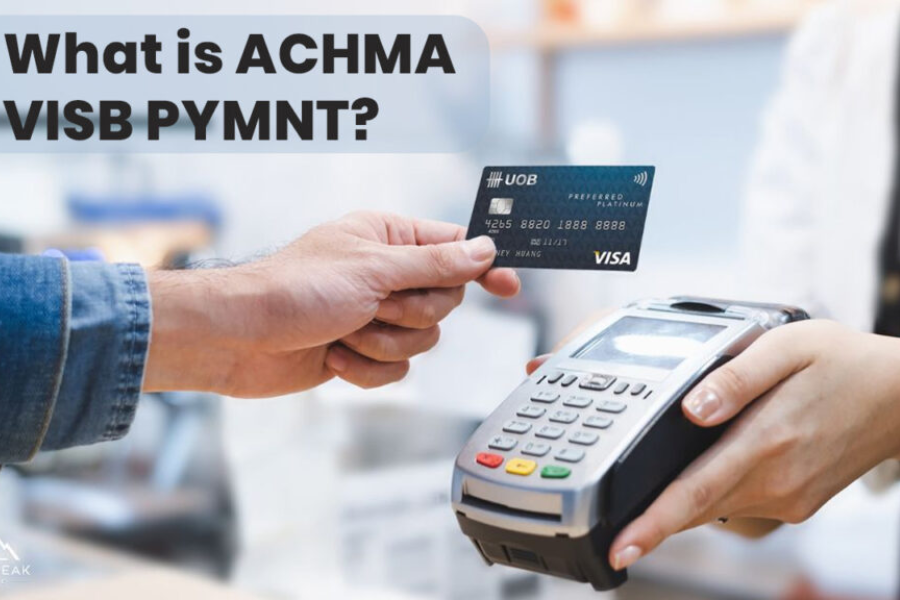Understanding ACHMA VISB Charges: A Guide for Verizon Wireless Customers
If you’ve noticed a charge labeled “ACHMA VISB” on your bank or credit card statement, you’re not alone. This fee can be confusing, especially for Verizon Wireless customers. In this guide, we’ll explain what ACHMA VISB means, how it works, and what to do if you suspect fraudulent activity.
What is ACHMA VISB?
ACHMA VISB stands for “Automated Clearing House Merchant Authorization Visa Bill Payment.” It’s a code used by Verizon Wireless to identify electronic payment transactions made through the Automated Clearing House (ACH) system, specifically for Visa card payments. This internal coding helps Verizon categorize different types of transactions.
How Do ACHMA VISB Charges Work?
When you sign up for Verizon Wireless services, you typically authorize them to deduct monthly payments directly from your account. The ACHMA VISB charge indicates that the payment has been processed electronically. These deductions occur on a predetermined date each month, and the charges may not be immediately recognizable as coming from Verizon, especially if you have multiple accounts or services.
Are ACHMA VISB Charges Fraudulent?
Most of the time, ACHMA VISB charges are legitimate and relate to your Verizon Wireless account. However, there are rare cases where these charges can be fraudulent. If you see ACHMA VISB charges but don’t have a Verizon account or didn’t authorize these payments, it’s important to investigate further.
Verizon has measures in place to prevent unauthorized access, but no system is infallible. If you suspect fraud, it’s crucial to act quickly.
What to Do If You Suspect Fraud
- Contact Your Bank or Card Issuer: Report any unauthorized ACHMA VISB charges to your bank or credit card issuer’s fraud department. Provide details about when you first noticed the charges and emphasize that you did not authorize them.
- Dispute the Charges: Request that the unauthorized charges be disputed and that your account be frozen to prevent further activity.
- Secure Your Account: Ask your bank or issuer for a new card and PIN to enhance your account security.
Your bank will investigate and, if they find that the charges were unauthorized, they may refund your money.
Should You Contact Verizon Wireless?
If you believe someone has opened a Verizon Wireless account in your name, you should contact Verizon directly. They have resources to help victims of fraud and identity theft. You can visit their account security guide for more information on securing your account.
While Verizon can assist with account issues, your primary line of defense against fraudulent charges is your bank or card issuer.
Conclusion
ACHMA VISB charges can initially seem alarming, but they are typically just part of your regular Verizon Wireless payments. Staying vigilant and regularly reviewing your financial statements can help you catch any suspicious activity early. If you spot unauthorized ACHMA VISB charges, don’t hesitate to contact your bank and Verizon for assistance.
FAQs
What does ACHMA VISB stand for?
ACHMA VISB stands for “Automated Clearing House Merchant Authorization Visa Bill Payment.”
Why is it important to understand ACHMA VISB charges?
Understanding these charges helps you identify legitimate transactions and detect potential unauthorized activity.
How can I confirm if ACHMA VISB charges are legitimate?
Review your financial records against your Verizon Wireless bills. If the charges align with your services, they are likely legitimate.
What should I do if I suspect ACHMA VISB fraud?
Contact your bank or credit card issuer’s fraud department immediately to report unauthorized charges and start the dispute process.
Are ACHMA VISB charges only associated with Verizon Wireless?
While primarily used by Verizon, similar codes may be employed by other merchants for their transactions.
Stay in touch to get more news & updates on washingtongreek.co.uk






